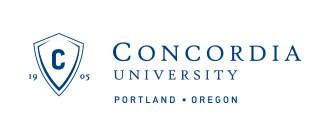If you are an educator who would like to become a credentialed instructor or curriculum specialist, you can prepare by enrolling in a program such as Concordia University Portland's online Master of Education (M.Ed.) in Curriculum and Instruction and choosing the Adolescent Literacy concentration. The program can be completed in approximately one year. Read on for additional details about it.
<h2 id="section---FrequentlyAskedQuestions">Frequently Asked Questions</h2>
<h3 id="section---WhatKindOfProgramIsIt">What Kind of Program Is It?</h3>
<p>The Master of Education in Curriculum and Instruction in Adolescent Literacy online program at Concordia University Portland is designed to prepare educators to promote reading proficiency in schools and throughout communities. Specifically, you can amass the skills to ensure that your students in grades 6 through 12 are reading at or above their academic levels. As you become immersed in advanced adolescent literacy and language studies, you'll have opportunities to acquire more in-depth knowledge in the areas of teaching and research. The program also looks at the use of technology as a classroom instructional tool.
</p>
<h3 id="section---WhatAreThePrerequisites">What Are the Prerequisites?</h3>
<p>This program is ideal for educators who want to instill a love of reading in their students as they build their own leadership skills. You must have an undergraduate degree with a GPA of 2.8 or above from an accredited university to be considered for admission. All applicants to Concordia University Portland programs must have earned a high school diploma or equivalent. In addition, applicants must submit two recommendation letters, a letter of intent, and a resume.
</p>
<h3 id="section---WhatAreTheCourseRequirements">What Are the Course Requirements?</h3>
<p>In addition to four adolescent literacy courses, you'll be required to complete five professional core courses and a capstone course. Class topics are as follows:
</p>
<p><u>Professional Core Requirements</u>
</p>
<p />
<table border="1"><tr><th>Course Code </th><th>Course Name</th></tr>
<tr><td>EDGR 502 </td><td> Developing Character through the Curriculum</td></tr>
<tr><td>EDGR 535 </td><td> Theories of Teaching and Learning</td></tr>
<tr><td>EDGR 595 </td><td> Community of Learners</td></tr>
<tr><td>EDGR 601 </td><td> Educational Research</td></tr>
<tr><td>EDGR 602 </td><td> Contemporary Educational Thought</td></tr>
</table><p><u>Personalized Adolescent Literacy Strand</u>
</p>
<p />
<table border="1"><tr><th>Course Code </th><th>Course Name</th></tr>
<tr><td>EDCI 502 </td><td> Adolescent Literacy: The Challenges</td></tr>
<tr><td>EDCI 506 </td><td> A Developmental Approach to Language Acquisition</td></tr>
<tr><td>EDCI 507 </td><td> Academic Literacy: Reading and Writing in the Disciplines</td></tr>
<tr><td>EDCI 508 </td><td> Improving Adolescent Literacy: Transformative Intervention Strategies and the Use of Technology</td></tr>
<tr><td>EDGR 698 </td><td> Action Research - Capstone</td></tr>
</table><h3 id="section---WhatCouldIDoAfterGraduation">What Could I Do After Graduation?</h3>
<h4 id="section---CareerOpportunities">Career Opportunities</h4>
<p>Depending on where your interests lie, you could go on to a career in public service, literacy research, or, of course, teaching. You might pursue opportunities such as the following:
</p>
<ul><li>Reading teacher (grades 6 - 12)
</li><li>Literacy curriculum development specialist
</li><li>Public school literacy instructional leader
</li><li>Literacy assessment specialist
</li><li>Literacy program evaluator
</li><li>Literacy coach</li></ul>


.svg)


